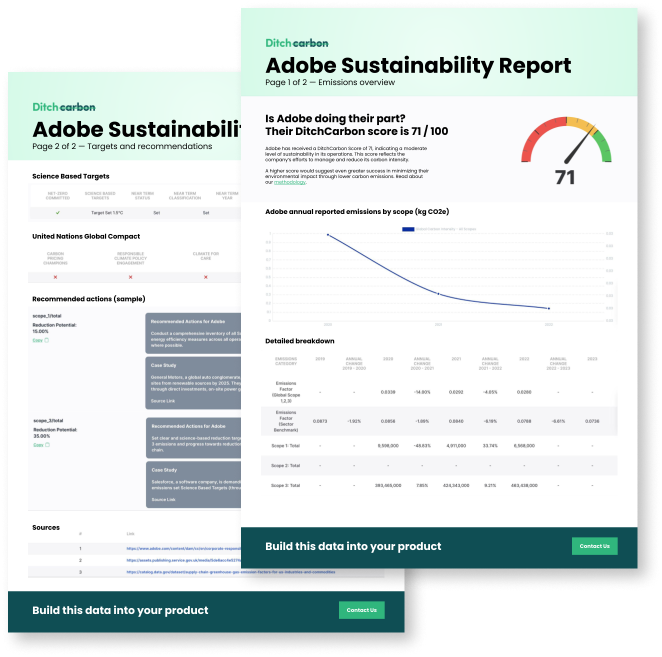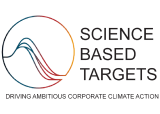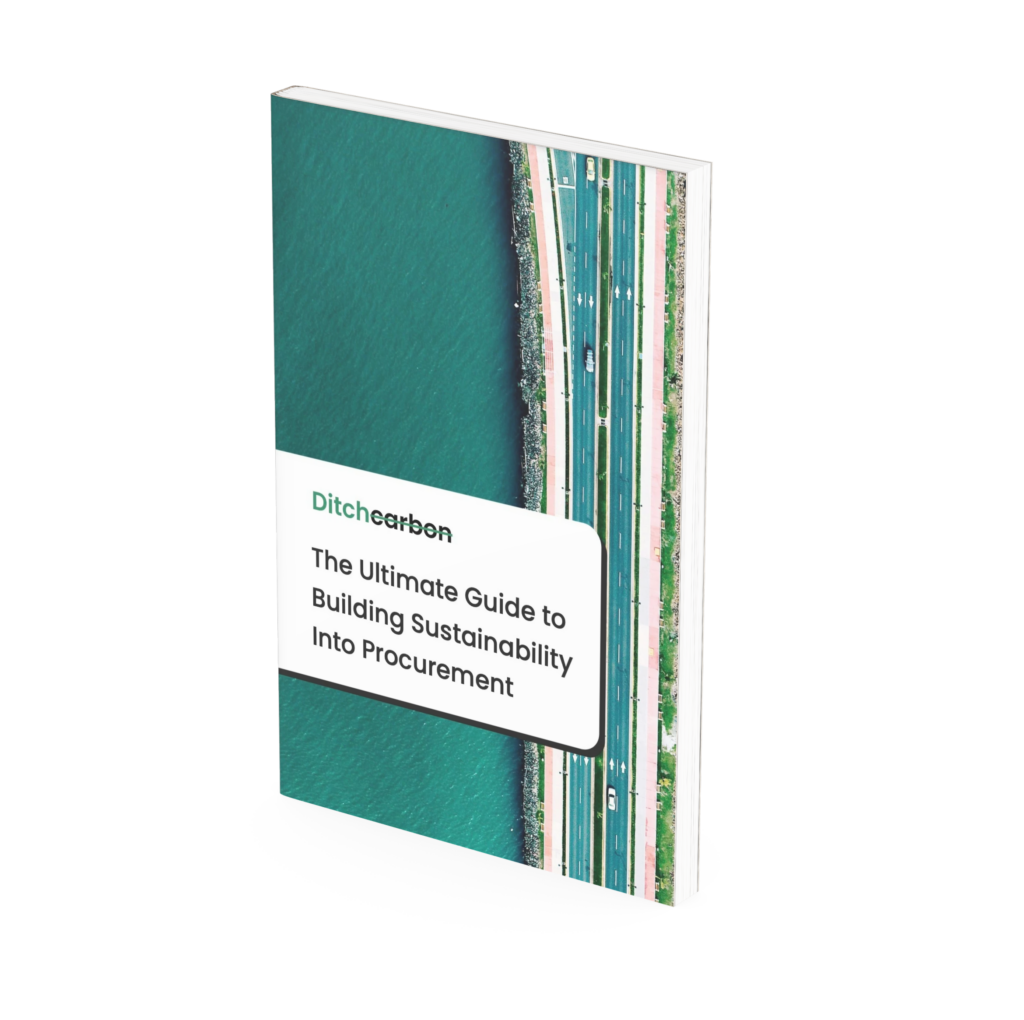
Samsung
Sustainability Report and Carbon Intensity Rankings
Is Samsung doing their part?
Their DitchCarbon score is 32
This was calculated based on 30+ company specific emissions data points, the higher the score, the better. Check out our methodology.
Industry emissions intensity
Very low
Low
Medium
High
Very high
Location emissions intensity
Very low
Low
Unknown
High
Very high

...this company is doing 9.29% worse in emissions than the industry average.
emission intelligence's platform recommendations for Samsung

Bad news, Samsung hasn't committed to SBTi targets yet

The Ultimate Guide to Building Sustainability Into Procurement
In this guide you can learn about the three stages of sustainable procurement.
Stage 1) – Identify and Communicate
Sustainability Maturity
Stage 2) – Start to Give Preference to Mature Suppliers
Stage 3) – Make Climate Action a “Hard” Measure for Procurement

The Ultimate Guide to Building Sustainability Into Procurement
In this guide you can learn about the three stages of sustainable procurement.
Stage 1) – Identify and Communicate
Sustainability Maturity
Stage 2) – Start to Give Preference to Mature Suppliers
Stage 3) – Make Climate Action a “Hard” Measure for Procurement

Claim this profile
Are you associate with this company?
Help us improve our data and claim this profile.
Our methodology
Read about our emission calculation methodologies, and what the DitchCarbon Score means.
Other company reports in this industry
Looking for a specific company?
Search our company directory or contact us for custom data requests.